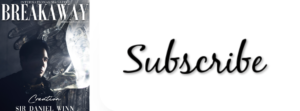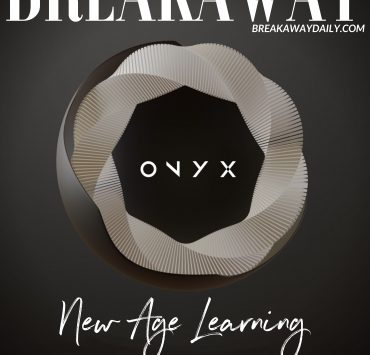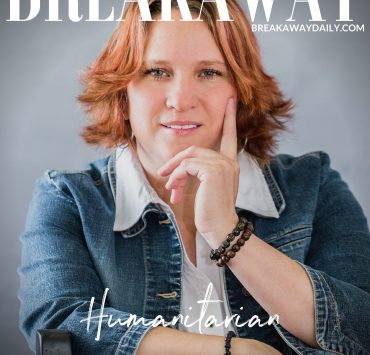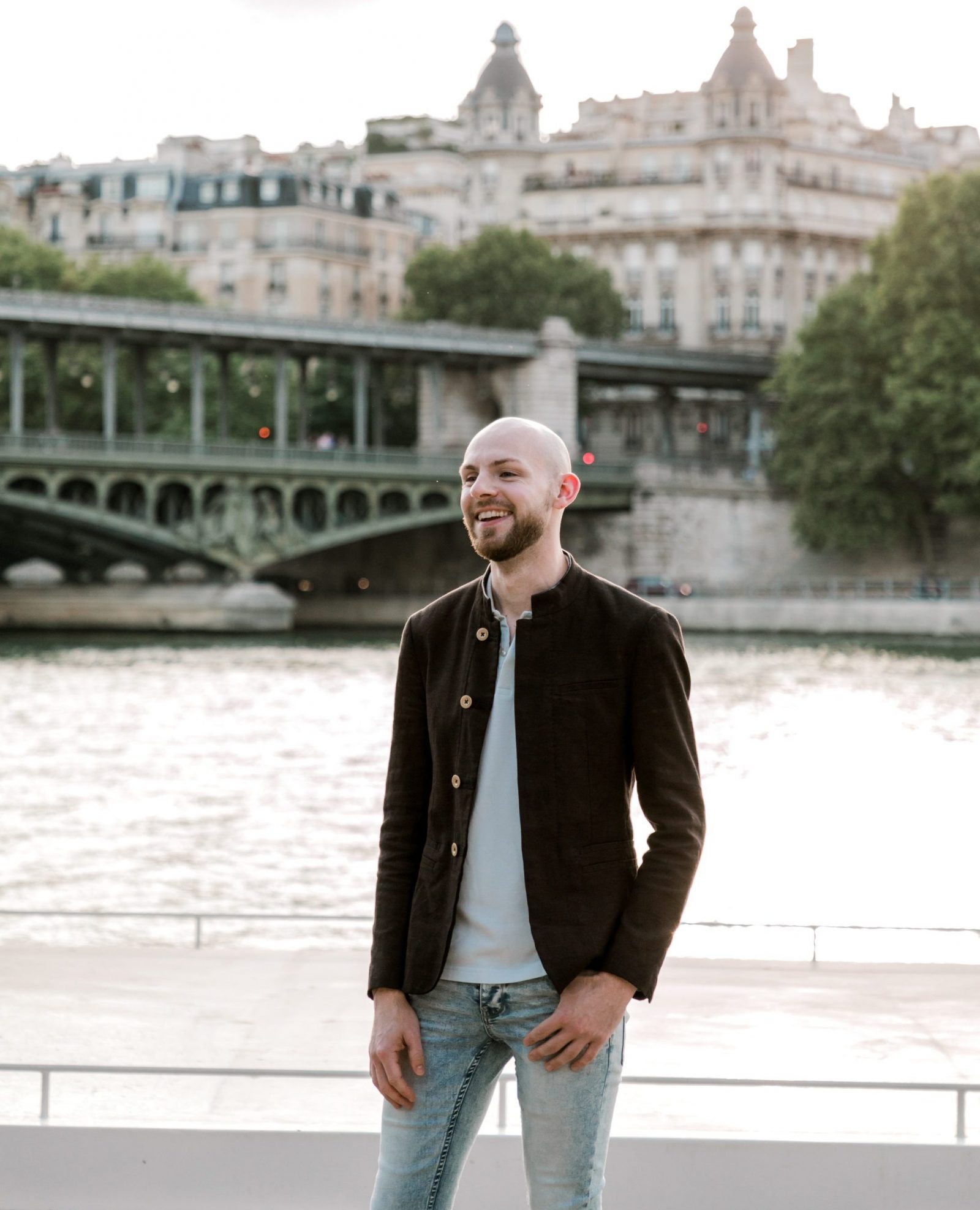
I wanted to write about what it’s like to be diagnosed with and live with HIV, but I didn’t want that to be the central theme, but rather one part of the complexity of the characters’ lives.
Jeremy C Bradley-Silverio Donato is a man who exemplifies what it means to reinvent yourself. He is the author of Virginia Woolf and The Judicial Imagination, a monograph based on his doctoral research in law. He has visited more than fifty countries, lived in six of them, and writes wherever he happens to be. His passion for writing led him to leave his corporate job last autumn and move to Paris in order to become a full-time author. My Memory Told Me a Secret is Jeremy’s first novel about the power of choice and the impact of culture, class and socioeconomic status. It also delves into how our upbringing determines who we become.
Can you tell us a little about your journey to writing your first novel, My Memory Told Me A Secret?
This is my first novel. I’m thirty-four years old. While that’s not old, it is a rather late age to start writing seriously. I had a whole career from the age of twenty-one until thirty three, all in roles revolving in some way or another around education. I worked in an educational hedge fund on Wall Street, did development work for educational non-profits and more recently was the executive director of an education technology firm. During those years of corporate work, I also earned an MBA, did doctoral work in law, and completed a course in leadership from Harvard. I’ve always wrote, publishing bits of my PhD or things for work, but leaving my corporate job last autumn and moving to Paris precipitated writing fiction full time.
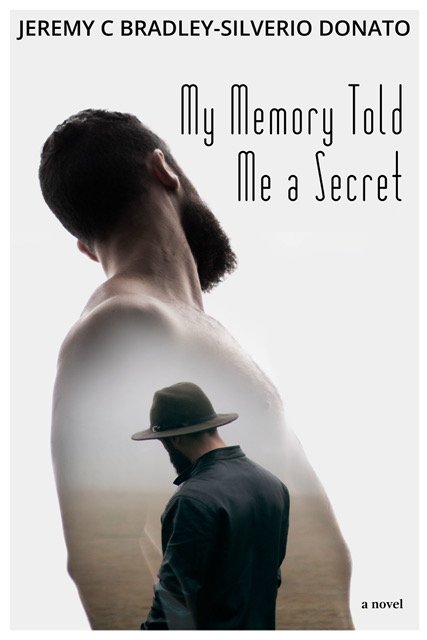
Where were you living before moving to Paris?
I have lived in five other countries (most recently in the UK) and traveled to more than fifty. I write wherever I happen to be; each new place can provide insight or inspiration.
Love made you make the leap to Paris! Can you tell us more about that?
I got engaged and then moved to live with my then-fiancé in Paris. I was writing a book, planning a wedding and moving countries. We were married in March of this year and by then I had already written the first draft of My Memory Told Me A Secret.
What do you think it is about living in Paris that has inspired your writing and your writing style?
Starting over in a new place gave me the freedom to explore my thoughts and ideas in a new way. I often write in coffee shops, surrounded by noise and movement. Some writers would probably find this distracting, but it forces me to be a keen observer of people. My French is fairly bad, but this works to my benefit because I can sit in my corner of a café and observe people’s mannerisms, speech patterns, appearance, and so on without having their words influence my conceptions. There’s a long tradition of American writers living in self-imposed exile in France. I’m thinking of James Baldwin, Paul Auster, Hemingway, people like that whose writing was influenced by Paris but not always or necessarily about Paris. I can’t hope to compare myself to any of them, but it is interesting to see how France has played host to generations of writers.
You published the book in-house. Can you tell us about the publishing process?
I had so many rejections from literary agents I was almost at wits end. In the end, I collaborated with my small network of talented friends to found a small publishing house called Eiffel Tower Press (I have a view of the tower from my flat) focused on non-traditional and non-mainstream stories. I asked my friends that are teachers and who have English degrees to be my first readers. A close friend with a background in communications was my editor and the design was also done in-house. We’ve partnered with a printer and distributor, so the book and eventually any other book that Eiffel Tower Press puts out is available through all major retailers, both online and in store. I like to think we’re doing something like Hogarth Press – Virginia and Leonard Woolf’s boutique publishing house – but I’m really just pleased to find people that believe in my work!
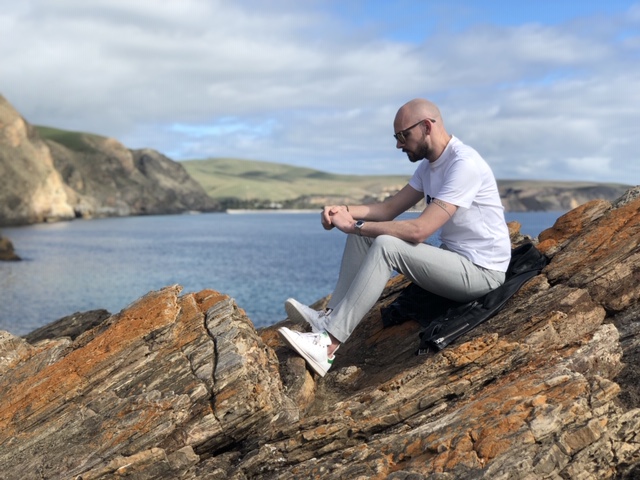
What inspired you to write this novel?
I wrote the first scene several years ago and then sort-of put the whole thing out of my mind for a while. When I sat down to seriously write a novel, I pulled out that scene and started to flesh out the concept. It’s often said that a writer’s first book is the most straightforward to write because you write out of experience, putting all the most immediate things you know into the work. I think that’s mostly true here. I wanted to write about what it’s like to be diagnosed with and live with HIV, but I didn’t want that to be the central theme, but rather one part of the complexity of the characters’ lives. There’s also an element of accepting your identity and the people you come from. In the acknowledgements, I wrote a note to that effect: how writing the book helped me come to terms with my mother and with all the women who have played a mothering role in my life.
Can you explain your writing process?
It seems to be constantly evolving, and I think that’s because I’m not precious about where and when I write. The goal is to write about 500 words a day. That doesn’t sound like much, but 500 good words is pretty good progress especially if one agonises over the words as I do. Most of Memory was written on my MacBook and sometimes on my iPhone when I had an idea on the go. With the piece I’m currently working on, I’m writing longhand. This is freeing and, I think, more creative. All I need is a notebook and my Cartier pen (I have a silly attachment to using a Santos de Cartier black lacquer pen).
How would you describe the characters in the book?
From the point of view of character development, everyone in the book has secrets… Austin is a workaholic desperate to be loved. Noah has a substance abuse problem, but only because the voices in his head never stop. Milli wants nothing more than to be appreciated. Lilly yearns for attention, especially when she can’t get it from her husband.
The book deals with many important and complex central themes, can you describe some of those?
The primary theme is related to memory and how we are both the actors and the witnesses in memory. I was interested in exploring how dreams and memories reveal (and sometimes hide) core aspects of what makes people tick and how that relates to culture, race, and religion. There is an overarching theme of the power of the mind to suppress the traumatic, but how reliving trauma is sometimes necessary for recovery.
Who did you intend to be the audience for the book and is it the same as who it has become?
I have lived with HIV since 2010, and it would have been very cathartic to read a novel like this when I was diagnosed. Part of the narrative is therefore personal, but I’ve been surprised and grateful to see how the book has meant different things to different people, many of which are not part of the LGBT community and/or are not HIV+. As I said, I never wanted HIV to be the central or the only concern of the book, there’s also the addiction and mental health aspects, the relationships people have with their co-workers, family, and friends and so forth. So I think the book has wider appeal than even I gave it credit for initially.
Is there a likeness of real-life people to the novel’s characters?
When my husband read the first draft, he saw himself in each of the characters until they did something he didn’t like, and then he’d say, “Oh maybe I’m not Austin, maybe I’m Noah” or vice versa. But in truth, the novel’s characters are more like me than they are like any other real-life people. And even then, there’s a lot that’s been invented. As someone who spent years writing non-fiction, this is the most challenging aspect of fiction writing. You are essentially making things up, but they need to sound and feel real. As Emily Dickinson said, “Tell all the truth but tell it slant — Success in Circuit lies.”
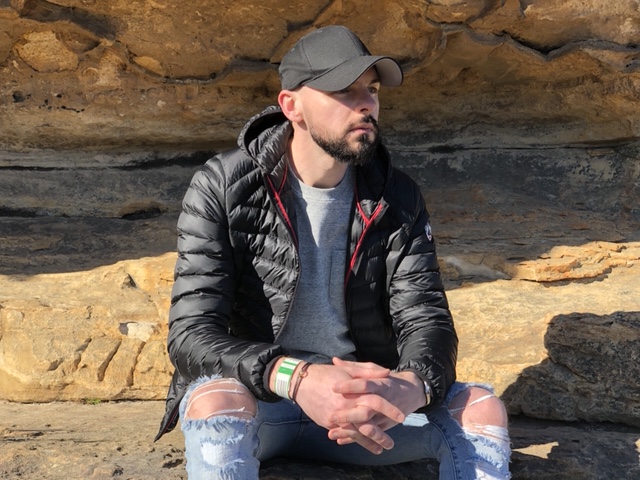
What are some of your favorite books?
Zadie Smith, Paul Auster, Siri Hustvedt, Paula Fox. These are some of the authors whose work I read and think ‘I want to write like that!’
What are you currently reading?
I’m currently re-reading Toni Morrison’s Beloved. I first read it when I was about seventeen. There was a second-hand book sale at school and I picked it up there. It confused and frightened me in equal measure, so it’s been interesting to read it again with twice as much life experience. Before that, I read Wolfe’s The Bonfire of the Vanities, which I really enjoyed for its complex character profiles.
What advice would you give to others who want to pursue their passion?
There are many people who want to write but never actually finish a draft, or if they do, they never do anything with it. Fear is probably the biggest hurdle, as is motivation. My advice would be to follow Nike’s slogan “Just Do It.” If you get writer’s block, just ask yourself “what’s next?” and then let your imagination fill in the blanks. I’d always rather be told “you’re too much” than “you didn’t go far enough.”
What are you working on next?
While My Memory Told Me A Secret was being farmed out to agents and publishers I wrote the first draft of a second novel. The story itself is interesting, but I wasn’t particularly pleased with the plot development. Plot is never one of my central worries, I don’t think literary novels need overly concern themselves with plot, but there wasn’t a core to the story in the way I would’ve liked, so I’ve put that one on the backburner indefinitely. I realize now that the reason it didn’t work is because I was missing the element of truth that makes my work, well, work. People have asked me ‘Why don’t you write something about Paris’ or ‘Are you always going to write about gay men’ and the answer is (1) I might never write a novel about Paris, and (2) probably so. One has to write what one knows. One of the things I’m proudest of with this book is it going to number one on the ‘hot new releases’ chart. When I look at that list, the majority of LGBT books are either steamy romances or personal memoirs. There are very few novels about everyday gay men living ordinary lives. So, I think I owe it to myself and to the community, however broadly conceived, to keep writing what I know. That a broader base of people appreciate my work is a bonus.
For more information on Jeremy Bradley-Silverio Donato visit his official website. My Memory Told Me a Secret is available in paperback and e-book on Amazon and through all major retailers.
Breakaway Magazine writes thought-provoking stories that transcend boundaries, providing transformative viewpoints on breaking barriers. Through an international readership of millions, every story empowers readers interested in gaining a wider outlook on life through diverse voices. "The magazine reaches millions, connecting with an audience interested in more than just the trend, but the deeper meaning." - Jamee Livingston, Founder/Editor-In-Chief. Read more on our about page.







